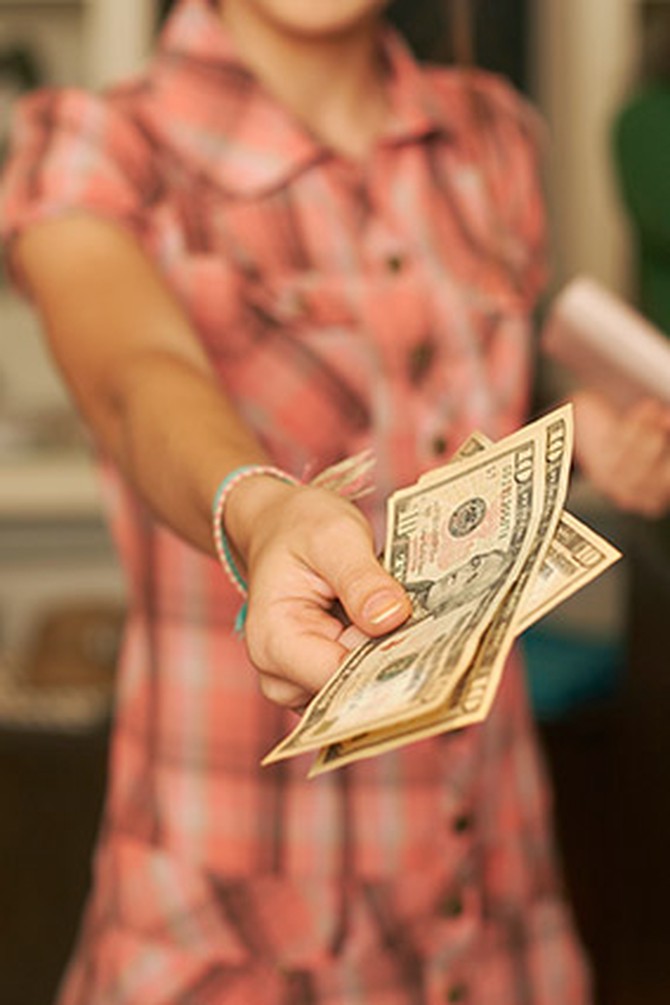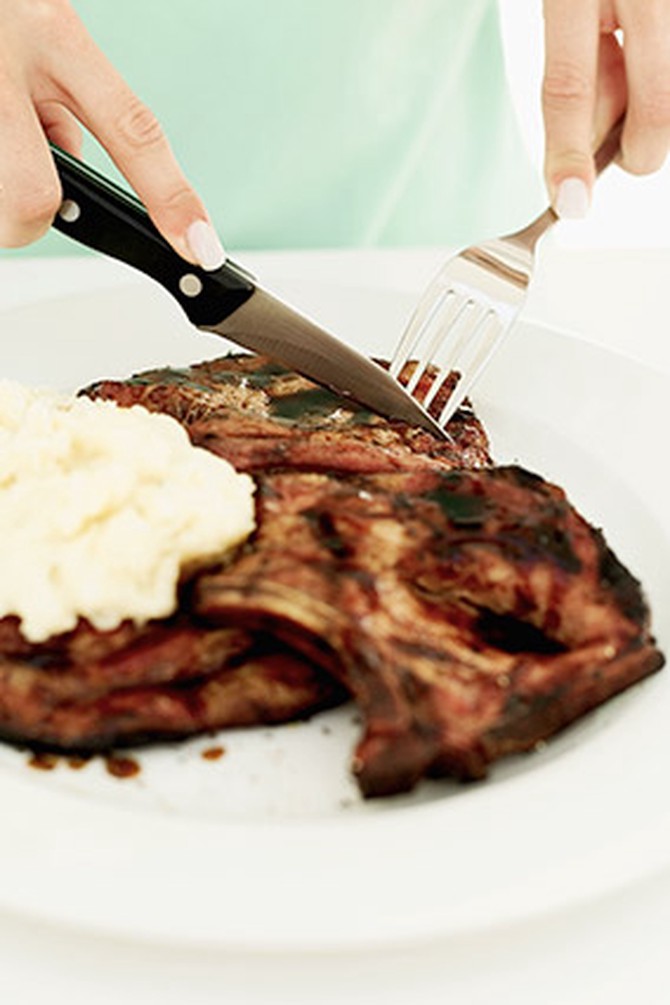10 Lab-Tested Ways to Bring Out the Best in People
The best of human nature—generosity, compassion, cooperation, selflessness—surfaced in these studies. Of course, the goal is to draw out a person's good side, not exploit it. Use your powers wisely.
By Jena Pincott

Photo: Thinkstock
Discovery #1: Inspire a Seat-of-the-Pants Moment
When are people more generous: spontaneously or after stopping to think? To find out, Harvard researchers timed game players as they decided how much money to contribute to a pool that would be doubled and divvied up evenly (the more everyone chips in, the more they get). The result: Faster decisions are kinder. When (by force or choice) people took 10 seconds or less to decide, they contributed 15 percent more money to the common pot than those who took longer. Cooperation seems to be the first impulse (for most of us) before beady-eyed self-interest undermines it. The next time you're running a fundraising marathon, make a quick emotional appeal, then set a quick deadline for the donors.

Photo: Thinkstock
Discovery #2: Warm the Cockles of Their Insulas
If you want people to act more warmly, offer them a hot cup of coffee and make them hold it for a minute or two. Subconsciously, temperature affects our perceptions—and actions—find studies by Yale University psychologist John Bargh, PhD, and his colleagues.
In one, volunteers who held a warm-pack before playing a game trusted in and invested more money with an anonymous partner than did those whose hands were chilled. It's a quirk of the insula, a prune-sized part of the brain that forms cross-associations between physical and psychological warmth. When you heat people up—even their hands, briefly—they perceive you and everyone else as warmer, and they respond in kind.
In one, volunteers who held a warm-pack before playing a game trusted in and invested more money with an anonymous partner than did those whose hands were chilled. It's a quirk of the insula, a prune-sized part of the brain that forms cross-associations between physical and psychological warmth. When you heat people up—even their hands, briefly—they perceive you and everyone else as warmer, and they respond in kind.

Photo: Thinkstock
Discovery #3: Feast Their Eyes
Here's a surprise: The sight of meat makes people significantly less, not more, aggressive. Kinder, even. This comes from a study led by Frank Kachanoff, a researcher at McGill University, who asked men to blast people with sound whenever they made a mistake sorting photos—which featured either juicy, brownish-pink hunks of meat or neutral imagery. To everyone’s surprise, the group of guys looking at the ready-to-eat rib-eyes were unwilling to inflict as much discomfort on another person.
The likely reason: People associate the sight of sumptuous food (like a roast) with communal moments such as celebrating with friends and family. This brings out the inner kitten, not the tiger.

Photo: Thinkstock
Discovery #4: Invoke Something Bigger Than Big
No one thinks "me, me, me" when they're looking at snaps of the Orion Nebula or listening to Beethoven's Fifth. More likely, they're seeing themselves as part of a greater whole, found psychologist Dacher Keltner, PhD, at the University of California at Berkeley.
Keltner and his colleagues stationed volunteers in one of two places—either facing a five-ton, life-size model of a Tyrannosaurus rex, or an empty hallway—and asked them to describe themselves. The wonderstruck viewers would say something universal, like, "I am an inhabitant of Earth" rather than, for instance, that they were business majors. An antidote to self-absorption, "awe tends to direct attention away from the self and toward the environment," the researchers write.

Photo: Thinkstock
Discovery #5: Do (Even the Craziest) Things in Sync
There's a reason why modern armies make soldiers march in lockstep, found Stanford University's Scott Wiltermuth, PhD, and Chip Heath, PhD. Synchrony makes us more sympathetic.
The behavioral psychologists asked volunteers to do various exercises, such as marching, singing, and clapping cups over their mouths. Afterward, in a game involving real money, people who had been instructed to perform synchronously were more generous, trusting, and cooperative (even if the activity didn't actually make them happier) than the group who had been doing the same things out of sync. This helps to explain why group rituals like praying, bowling and chanting in unison are so heart-opening. Of course, the same applies to karaoke singing, head-banging, bathroom cleaning—anything, really, as long as it's in sync.
The behavioral psychologists asked volunteers to do various exercises, such as marching, singing, and clapping cups over their mouths. Afterward, in a game involving real money, people who had been instructed to perform synchronously were more generous, trusting, and cooperative (even if the activity didn't actually make them happier) than the group who had been doing the same things out of sync. This helps to explain why group rituals like praying, bowling and chanting in unison are so heart-opening. Of course, the same applies to karaoke singing, head-banging, bathroom cleaning—anything, really, as long as it's in sync.

Photo: Thinkstock
Discovery #6: Throw Cosmic Uncertainty into the Mix
There are times when we achingly want something—a plus-sign on a pregnancy test, a miracle drug to live up to its name—yet have no control over the outcome. We're extremely generous in these moments, finds a study led by Benjamin Converse, PhD, at the University of Virginia. After job-fair attendees, wannabe moms, standardized-test takers and other hopefuls reflected on the results they so dearly desired, they offered significantly more time to volunteer work and money to charities compared to a control group. "Rather than waiting passively to learn their fate, people may act as if they gain fate's favor if they do good deeds proactively," the researchers write. Bringing out the best in karma-seekers is easy: Just provide any opportunity to do good.

Photo: Thinkstock
Discovery #7: Excite One Special Molecule
"If people know we expect good things from them, they will in most cases go to great lengths to live up to our expectations," the minister Alan Loy McGinnis once said.
Biologically speaking, you just need to push the right buttons. When game-playing volunteers in a study led by Paul Zak, PhD, at Claremont Graduate University were given a large amount of money by strangers—a signal of trust—their oxytocin level surged, and they reciprocated in kind (unlike when they received the same sum in a random draw). Oxytocin is associated with the better angels of our nature: generosity, cooperativeness, and empathy. (Beware: Five percent of the population doesn't produce oxytocin on stimulus.)
Biologically speaking, you just need to push the right buttons. When game-playing volunteers in a study led by Paul Zak, PhD, at Claremont Graduate University were given a large amount of money by strangers—a signal of trust—their oxytocin level surged, and they reciprocated in kind (unlike when they received the same sum in a random draw). Oxytocin is associated with the better angels of our nature: generosity, cooperativeness, and empathy. (Beware: Five percent of the population doesn't produce oxytocin on stimulus.)

Photo: Thinkstock
Discovery #8: Rub Them the Right Way
Once you express your trust, there's an easy way to maximize that goodwill: Give a massage. In Zak's follow-up study, volunteers received a 15-minute professional rub-down before they played a game during which they received an "I trust you" cue from a stranger. Their oxytocin levels soared—and so did their generosity (especially women's). They gave away 243 percent more money than players who received identical trust signals but not massage. Such is the power of the trust-and-touch combo punch: It makes people significantly more cooperative and willing to sacrifice so that everyone does well.

Photo: Thinkstock
Discovery #9: Sweeten Your Vocabulary
Slip softer, soulful words into your everyday vocabulary (Facebook status, tweets, whatever) and your listeners may be friendlier without knowing why. In a study at Columbia University, managers who were subliminally exposed to "cooperation" words ("mutual," "shared," "collaborator") were more likely to share knowledge and resources than those exposed to "competition" words ("winner," "loser," "opponent"). In another experiment, volunteers who unscrambled sentences using spiritual words ("God," "divine," "sacred") or social responsibility concepts ("civic," "jury") later gave more money to strangers than those exposed to neutral words. The concepts triggered associations that were acted out subconsciously.

Photo: Thinkstock
Discovery #10: Make the Golden Rule Infectious
Be generous for no apparent reason and—here's the crucial part—make sure others take note. That's the formula for spreading kindness, found political scientist James Fowler, PhD, at the University of California, San Diego, and medical sociologist Nicholas Christakis, MD, PhD, at Harvard University. When they asked volunteers to play a game in which selfishness was more rational, people who gave a lot of money inspired others to do the same for the following two rounds of play. When players received unexpectedly generous sums of money, they opened their wallets in kind. And when a player acted selfishly, everyone enthusiastically chipped in to punish the person. It's a copycat effect, the researchers contend, with everyone following one plucky, deep-pocketed leader. (Sadly, selfish cycles start the same way, and just as easily.)
Next: Transforming a community, one fair-trade shoe at a time
Next: Transforming a community, one fair-trade shoe at a time
Published 03/08/2013

